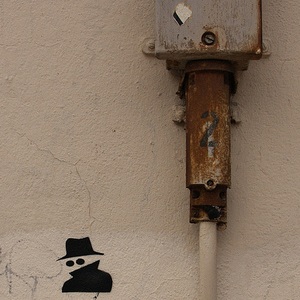Of Spies and Casinos
Not the ten from the Illegals Program sleeper cell spy ring rounded up in 2010, whose integration into the U.S. formed the backbone of the cable drama, The Americans.
No, the ones in New York City who attempted to recruit college students and collect economic intelligence.
Three in total were arrested a year ago January — Evgeny Buryakov, Igor Sporyshev and Victor Podobnyy — the latter two shipped out as they were here under diplomatic visas while the first was prosecuted and jailed.
The story is rather interesting though it didn’t garner much attention outside New York. The spies were tasked with not only recruiting but gathering intelligence in the financial sector about market destabilization and the status of development and investment in alternative energy.
Buryakov, who was not under diplomatic protection, wasn’t the sharpest pencil in the box. He was a little put out at having a less than glamorous gig, and he was rather imprudent. He was recorded easily, and his words used as evidence against him.
One interesting bit was thinly fleshed out in the USDOJ’s complaint.
Buryakov toured casinos in Atlantic City.
But which casinos?
In July 2014, a confidential contact working on behalf of the FBI, “posed as the representative of a wealthy investor looking to work with Bank-1 [the Russian bank for which Buryakov posed as an employee] to develop casinos in Russia,” and approached Buryakov about casino development in Russia. A tour of Atlantic City casinos was taken in August.
Combing through the complaint looking for the colleges from which they attempted to recruit revealed no mention of Trump University.
But the casinos visited aren’t clear. The Trump Plaza (closed September 2014) or the Trump Taj Mahal (closed October 2016) can’t be ruled out as sites visited by Buryakov — the Plaza closed only a few weeks later.
The skepticism with which they viewed the casino gambit was amusing (excerpt from complaint, p. 23-24):
It was a trap, just as suspected; did the confidential source not give off the right vibe, or were the Russians skeptical of any investment in casinos developed in Russia? Trump, after all, didn’t get his Trump Towers Moscow off the ground even after his 2013 trip for the Miss World Pageant. Did the skepticism worry the FBI they might lose their targets? Or did the FBI finally have enough of toying with these guys and decide it was time to drop the hammer? Was some other trigger which forced the FBI to wrap up this investigation?
A few other points worth noting:
• “Others known and unknown” were also involved in spying or supporting spies but were not included in the warrant according to the complaint (ex: CC-1 and CC-2 in complaint). Who were they and where are they now? Has the FBI continued to watch them? Were any of them among the Russians who were escorted out of the U.S. after former president Obama announced new sanctions this past December?
• “And then Putin even tried to justify that they weren’t even tasked to work, they were sleeper cells in case of martial law,” Victor Podobnyy remarked in a conversation about the Illegals Program sleeper cells. What did he mean by, “in case of martial law”? Is this a continuing concern with regard to any remaining undetected sleeper cells?
• A “leading Russian state-owned news organization” was mentioned in the complaint, “used for intelligence gathering purposes.” Which news outlet was this? How did this news organization figure into advanced methods used by this operation? It would be interesting to know if this was RT (formerly Russia Today) given Michael Flynn’s and Jill Stein’s attendance at an RT event in December 2015.
• The spies used an office in Manhattan for conveying information to their superiors. How was this done apart from phone calls; what technology and networks if any were involved?
There’s an important bit about aeronautics, but I’ll tackle that in another post. It’s important enough to be broken out on its own.
Oh, one last thing about this case: timing.
— On January 21, 2016 UK’s public inquest announced its final conclusions into the PO-210 poisoning death of Alexander Litivinenko, attributing the murder to orders from the top of Russia’s FSB — including Vladimir Putin.
— The next day, January 22, the UK froze the assets of the escaped henchmen accused of the poisoning while seeking their extradition.
— A sealed complaint and a request for warrants were filed in Southern District of New York for the three Russian spies on January 23, 2016.
— The arrests of the spies was reported publicly on January 26, 2016.
These events on either side of the Atlantic didn’t happen in a vacuum. The casinos’ tour and the hand-off of government documents happened nearly six months before the complaint and warrants were filed and issued. But the Litvinenko inquest conclusion and the arrests happened within a couple of days — mere hours apart.
It shouldn’t be surprising to find coordinated retaliation occurred against both the UK and the US.

